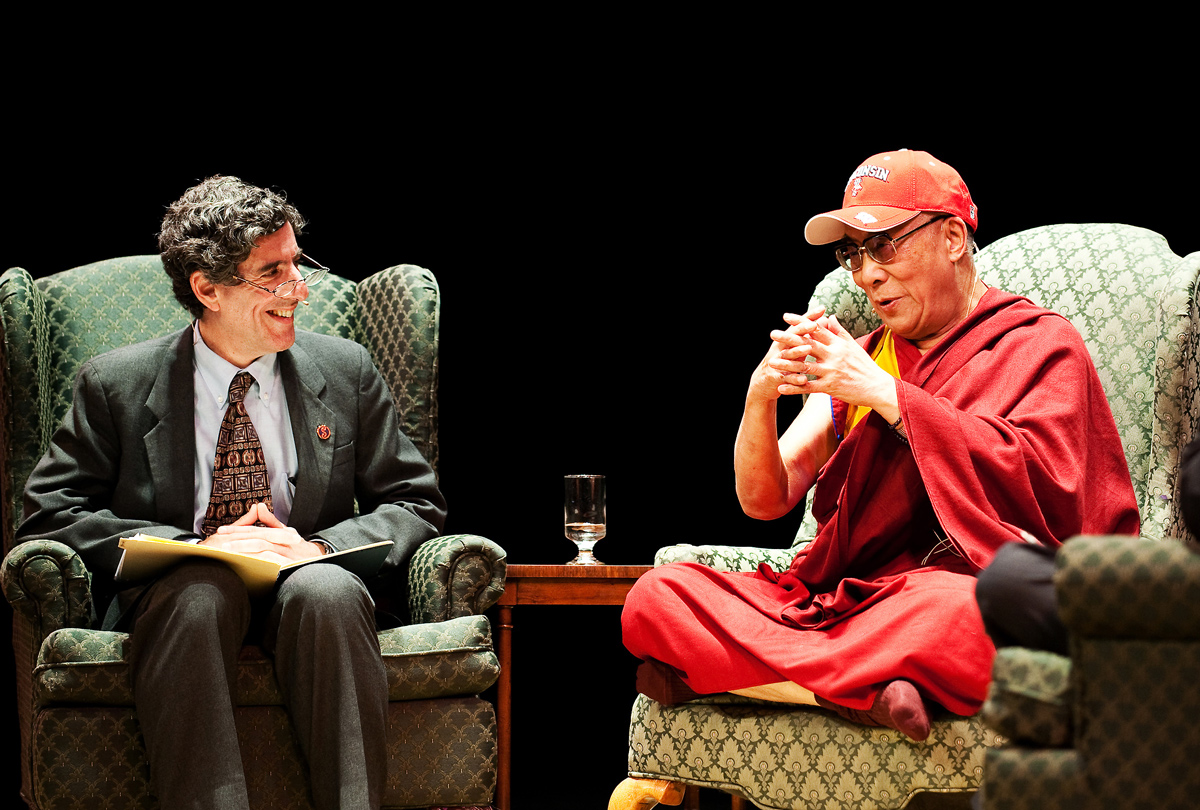Center for Healthy Minds & Healthy Minds Innovations
The World We Make: 2020
October 5 – 9, 2020
How are our actions today planting the seeds for a better world tomorrow? What kind of world do we want to make – a world that’s kinder, wiser, and more compassionate? How do we get there?
Join us for a week-long series of online events with lively conversation, well-being tips and the opportunity to hear from mental health experts and special guests, including His Holiness the Dalai Lama.
Since the Center for Healthy Minds at the University of Wisconsin–Madison opened its doors in 2010, we’ve focused on personal transformation and how we can leverage the brain’s ability to change to improve mental and physical health.
Amid current global crises and social unrest, our task is even greater – to share insights and skills for everyone to flourish, whether it’s at home, in school, or at work.
Together, we will celebrate 10 years of progress and take a critical look at the challenges and opportunities to support a world where well-being is within reach for us all.
Learn about CORPORATE SPONSORSHIP opportunities

THE WORLD WE MAKE: 2020 Schedule
All events will begin at 7 p.m. CDT.
Captioning available for all events
Monday, Oct. 5 – The Plasticity of Mind, Brain and Body
Cutting-edge science suggests that meditation can have profound and lasting effects on our brains and behavior. But how? Scientists at the Center for Healthy Minds at the University of Wisconsin–Madison have spent years understanding the impact of contemplative practices on the mind and body. Join Center Founder Richard Davidson and Center Faculty Melissa Rosenkranz to explore a decade of scientific discoveries that set the foundation for healthier societies and how we can each take care of our own mind.
Tuesday, Oct. 6 – The Developing Mind
Children and teens study several topics as part of their education – math, reading, history, but what value do we place on their understanding of their own emotions and relationships with others, especially in the everchanging classroom environment many are experiencing now with remote education? Parents and caring adults agree on the need to raise kids that are kind and able to manage their emotions skillfully. According to a survey conducted by Sesame Street, nearly 80 percent of parents agreed it’s more important for their child to be kind than academically successful. Learn more about ways to nurture the development of healthy minds and hearts in our children from child development experts and Center Faculty Members Sarah Short and Julie Poehlmann-Tynan.
Wednesday, Oct. 7 – Well at Work: Strategies From Research to the Real World
What does it mean to be well at work, especially in the age of COVID? Join scientists and experts at Healthy Minds Innovations, the nonprofit affiliated with the Center for Healthy Minds that turns science into action through accessible tools, for a fascinating discussion to gain real-world skills to manage your well-being in the workplace, wherever that might be. We’ll explore take-aways from working with companies across the country to boost well-being in their workplaces, offer a live practice, and host a panel with representatives from one of our first pilot programs, teachers from local partner, the Madison Metropolitan School District (MMSD) who’ve taken part in our Healthy Minds @Work program to promote their emotional well-being and who are now faced with increased stress teaching remotely and balancing uncertainty with their own families and classrooms.
Thursday, Oct. 8 – Resilient Minds, Resilient Planet
How does our inner resilience and well-being reflect that of our communities and of our physical environment and planet? Large-scale injustices such as racism, gender inequity and lack of equal rights for marginalized people not only erode our individual and collective health and spirit, but are also destructive to the planet. Can emotional resilience in the face of these injustices be the answer on how we build resilience and just practices for the planet? Join Dekila Chungyalpa, Director of the Loka Initiative at the Center for Healthy Minds, Gary Besaw, Ex-Chairman of the Menominee Indian Tribe of Wisconsin, Heather McTeer Toney, Field Director of Moms Clean Air Force and Dr. Katharine Hayhoe, Atmospheric Scientist and Director of the Climate Science Center at Texas Tech University, to explore how vulnerability can transform into strength and how internal, community and environmental resilience are all necessary for each one of us to thrive.
Friday, Oct. 9 – Change Your Mind, Change The World
How can something as simple as training your mind change the world? The Center for Healthy Minds will pose this question – and will share some unexpected answers – in an intimate conversation with His Holiness the Dalai Lama and world-renowned neuroscientist and best-selling New York Times author Richard Davidson. Davidson and the Dalai Lama met in Dharamsala, India in 1992 and their long-time friendship and collaborations on the effects of mental training have led to groundbreaking discoveries and insights to create a kinder, wiser, more compassionate world. Dekila Chungyalpa will be joining the conversation to share the Dalai Lama’s remarks and advice. Chungyalpa is the Director of the Loka Initiative, a program to support faith-led environmental efforts. She serves as the environmental adviser for His Holiness the 17th Karmapa, head of the Karma Kagyu School of Tibetan Buddhism.
Event Sponsors



